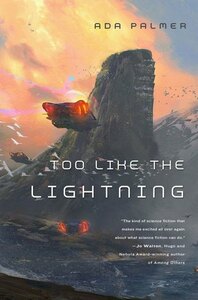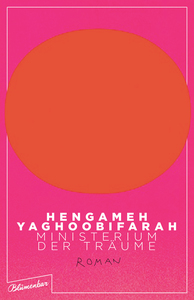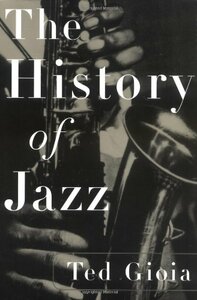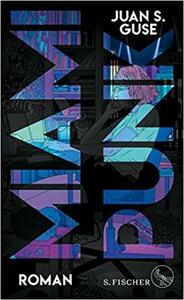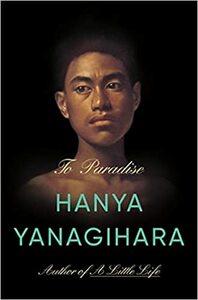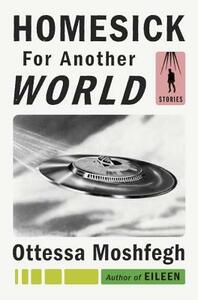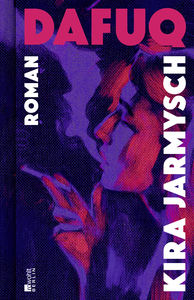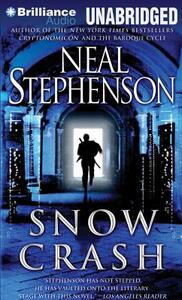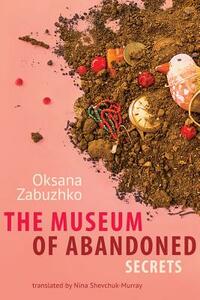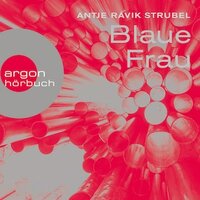Take a photo of a barcode or cover
pascalthehoff's reviews
404 reviews
The most ironic thing about Too Like the Lightning is that, despite its incredible smartness, on a surface level, it seems to strive to be even smarter. Lots of big concepts and ideas, made even more convoluted by the manner in which they are purveyed. This high barrier of entry, after a short phase of acclimatization, turns out to be a fun challenge of its own. Deciphering this faux-authentic transmission of a future civilization's history feels like something designed as a game – handing over each new puzzle piece precisely when the time is due.
In the end, however, what strained my patience more than these incessant world-building dumps or the initially unwieldy 18th-century-style prose was the other thing the novel took straight from the 1700s: Nearly all interactions in the story completely disregard the perspective of the average person. All chapters play out between people who are in some notable position. Politicians, nobility, important players in this world's economy and infrastructure or other characters who, for one or the other reason, each hold a "chosen one" position.
For how interesting this really unconventional (and volatile) utopia sounds, it's a bummer we never get even the smallest glimpse into what 25th-century earth looks like for the average person. Stuck in lofty societal heights and heady political, cultural or philosophical discourse, I never felt immersed enough to really care on any emotional level. I read Too Like the Lightning like a huge, narrativized academical think piece. And with how much effort the novel puts into being MORE than that, those efforts seem just the slightest bit wasted. (Although I still feel like this is one of those works that turned out exactly how its author intended. That self-confidence alone makes the novel extremely compelling.)
In the end, however, what strained my patience more than these incessant world-building dumps or the initially unwieldy 18th-century-style prose was the other thing the novel took straight from the 1700s: Nearly all interactions in the story completely disregard the perspective of the average person. All chapters play out between people who are in some notable position. Politicians, nobility, important players in this world's economy and infrastructure or other characters who, for one or the other reason, each hold a "chosen one" position.
For how interesting this really unconventional (and volatile) utopia sounds, it's a bummer we never get even the smallest glimpse into what 25th-century earth looks like for the average person. Stuck in lofty societal heights and heady political, cultural or philosophical discourse, I never felt immersed enough to really care on any emotional level. I read Too Like the Lightning like a huge, narrativized academical think piece. And with how much effort the novel puts into being MORE than that, those efforts seem just the slightest bit wasted. (Although I still feel like this is one of those works that turned out exactly how its author intended. That self-confidence alone makes the novel extremely compelling.)
Phew, what a read! This one is best digested slowly while listening along with the music the author talks about. In fact, it took me a few months of on-and-off reading to get through this, but – wow – has this been worth it.
Listening along with the music enhances the experience to an almost magical degree. (Spotify has a few user-made playlists with most of the tracks and albums from the book, in order of appearance.) Especially the early chapters about music from the early 20th century (with even a few tracks from the late 1800s sprinkled in), are mind-blowing. You lean back in your chair and listen to those scratchy records with really shoddy, monaural audio that somehow found their way onto your streaming service in 2021, and the book tells you about the songs' history and cultural relevance... It's hard to grasp the scope of the musical journey you are about to dive further into.
The author manages to tackle each major era, artistic movement or standout artist to exactly the right degree between detailed biographies and the broad picture of the art form. You don't have to know anything about music theory to enjoy this. While there are some sentences about scales and harmonies here and there, this is definitely for the culturally-interested reader, more than the musically interested one.
Listening along with the music enhances the experience to an almost magical degree. (Spotify has a few user-made playlists with most of the tracks and albums from the book, in order of appearance.) Especially the early chapters about music from the early 20th century (with even a few tracks from the late 1800s sprinkled in), are mind-blowing. You lean back in your chair and listen to those scratchy records with really shoddy, monaural audio that somehow found their way onto your streaming service in 2021, and the book tells you about the songs' history and cultural relevance... It's hard to grasp the scope of the musical journey you are about to dive further into.
The author manages to tackle each major era, artistic movement or standout artist to exactly the right degree between detailed biographies and the broad picture of the art form. You don't have to know anything about music theory to enjoy this. While there are some sentences about scales and harmonies here and there, this is definitely for the culturally-interested reader, more than the musically interested one.
Since the three stories To Paradise consists of barely make for one coherent novel, I'm going to tackle each story separately right ahead:
1) The most simple one, a rather by-the-numbers love story. Its only merit and factor of distinction lies in its queer PoC characters as well as in its setting where queer PoC characters don't get treated like (real-life) queer PoCs would be. In this setting, the queer love story basically resembles a heteronormative one. This, I guess, has at least some appeal in itself. Also, making such a conventional love story work as well as this one does doesn't come easy. Still, in the end, there is really not a lot to cling onto here in hindsight.
2) The second one, being itself split into two rather disconnected timelines, was even more hit or miss for me. The AIDS epidemic story completely failed to grip me. Alright in concept, but way too long in execution. This also goes for the Hawaii timeline – with the big difference here being that the representation of mid-20th century Hawaiian struggle in itself was fresh enough to carry the story after its lengthy introduction.
3) Lengthiness is a crucial factor in the third story as well, it making up for almost half of the book. Creating this near-future pandemic/climate dystopia, the author uses the broadest brush possible. The number of catastrophes, subsequent problems and totalitarian measures (among all of these, many clichés) is so overwhelming, the third story left me devastated every night after reading. This version of our future is just plausible enough to invoke existential dread. The two timelines, this time more closely interconnected, work way better here, despite becoming rather redundant towards the end, with one timeline filling up details the other one has already sufficiently implied.
The biggest strengths of all three stories are their open-ended conclusions. It's like all three stories are merely a very intricate build-up towards each of their bittersweet tipping points on the respective final pages. Pretty strange, considering that up to these endings, To Paradise just loves to delve into detail.
With the exception of the vivid Hawaiian history lesson and the devastating impression the third story's dystopia leaves, To Paradise was relatively unremarkable for its length. A Little Life took its sweet time as well, but was overall more coherent and more compelling on a moment-to-moment basis – not only in its plot and characters, but in its very direct and evocative language as well, which seemed a bit more bloated in To Paradise.
To Paradise is a little all over the place, but is still unique enough to warrant a read if one is willing to put in the time. In the end, despite the lengths, I still feel like one could argue for the relevance of every single bit of each story – if one prefers stories that don't spare any detail.
1) The most simple one, a rather by-the-numbers love story. Its only merit and factor of distinction lies in its queer PoC characters as well as in its setting where queer PoC characters don't get treated like (real-life) queer PoCs would be. In this setting, the queer love story basically resembles a heteronormative one. This, I guess, has at least some appeal in itself. Also, making such a conventional love story work as well as this one does doesn't come easy. Still, in the end, there is really not a lot to cling onto here in hindsight.
2) The second one, being itself split into two rather disconnected timelines, was even more hit or miss for me. The AIDS epidemic story completely failed to grip me. Alright in concept, but way too long in execution. This also goes for the Hawaii timeline – with the big difference here being that the representation of mid-20th century Hawaiian struggle in itself was fresh enough to carry the story after its lengthy introduction.
3) Lengthiness is a crucial factor in the third story as well, it making up for almost half of the book. Creating this near-future pandemic/climate dystopia, the author uses the broadest brush possible. The number of catastrophes, subsequent problems and totalitarian measures (among all of these, many clichés) is so overwhelming, the third story left me devastated every night after reading. This version of our future is just plausible enough to invoke existential dread. The two timelines, this time more closely interconnected, work way better here, despite becoming rather redundant towards the end, with one timeline filling up details the other one has already sufficiently implied.
The biggest strengths of all three stories are their open-ended conclusions. It's like all three stories are merely a very intricate build-up towards each of their bittersweet tipping points on the respective final pages. Pretty strange, considering that up to these endings, To Paradise just loves to delve into detail.
With the exception of the vivid Hawaiian history lesson and the devastating impression the third story's dystopia leaves, To Paradise was relatively unremarkable for its length. A Little Life took its sweet time as well, but was overall more coherent and more compelling on a moment-to-moment basis – not only in its plot and characters, but in its very direct and evocative language as well, which seemed a bit more bloated in To Paradise.
To Paradise is a little all over the place, but is still unique enough to warrant a read if one is willing to put in the time. In the end, despite the lengths, I still feel like one could argue for the relevance of every single bit of each story – if one prefers stories that don't spare any detail.
The many elements of absurdism this book hinges upon worked for me on a purely aesthetic level of subversion. Other than that, it was hard to take anything from this... except for the many negative bits where the absurdism veered into unnecessary malignancy. This and the overall triviality of the stories (which is kind of the point, I know) led to me quickly skipping sentences, pages and eventually skipping entire short stories and quitting the book altogether.
This is one of those books where its reputation makes you believe there MUST be something there. The first impression Snow Crash makes is strong, despite being not at all what you would expect if you only knew it so far as "The Metaverse Novel". Skateboards, samurai swords, pizza delivery with lethal stakes...? The sheer wtf element kept me reading and my experience with Snow Crash peaked right there. These very unconventional, very 90s and very kinetic scenes are only held back by being conveyed via written text. So, color me not the least surprised when I found out a bit later while scrolling through the Wikipedia page that Snow Crash was originally supposed to be some sort of experimental graphic novel.
As soon as Snow Crash goes into constructing its Cyberpunk-esque world, things start to fall apart. Lots of interesting ideas, though not many of them are too original or groundbreaking (even from an early-90s perspective). Even the Metaverse that gets heavily monetized with people buying real-estate and stuff is only the logic conclusion to any "Metaverse" idea in a post-Thatcher and post-Reagan world. The entire representation of a virtual reality in Snow Crash is way more interesting in concept than anything the novel actually accomplishes with said concept.
And then there is the writing style that veers from try-hard to just confusing as well as the utter lack of dramaturgic cohesion – both made me either fall asleep or seriously question my reading-comprehension in English.
The only saving grace is the bit about how the actual virus Snow Crash works. Just the kind of out-of-left-field hotchpotch of neurolinguitics, ancient Mespotamian history and cybertechnology that fits this novel. It has its moment like that, but all of these moments are dwarfed by the clutter that is the rest of the novel.
As soon as Snow Crash goes into constructing its Cyberpunk-esque world, things start to fall apart. Lots of interesting ideas, though not many of them are too original or groundbreaking (even from an early-90s perspective). Even the Metaverse that gets heavily monetized with people buying real-estate and stuff is only the logic conclusion to any "Metaverse" idea in a post-Thatcher and post-Reagan world. The entire representation of a virtual reality in Snow Crash is way more interesting in concept than anything the novel actually accomplishes with said concept.
And then there is the writing style that veers from try-hard to just confusing as well as the utter lack of dramaturgic cohesion – both made me either fall asleep or seriously question my reading-comprehension in English.
The only saving grace is the bit about how the actual virus Snow Crash works. Just the kind of out-of-left-field hotchpotch of neurolinguitics, ancient Mespotamian history and cybertechnology that fits this novel. It has its moment like that, but all of these moments are dwarfed by the clutter that is the rest of the novel.
Came for the insights into Ukrainian history, culture and life – what I got was what feels like an endlessly meandering one-person podcast about mostly mundane things with glimpses of striking clarity here and there.
Don't get me wrong – there is some VERY interesting, downright enlightening stuff in these monologues. You just need to find the gold between hundreds of lines. It's not merely a factor of value-for-time. I just didn't feel engaged by this novel at all. Which is weird.
Because the prose itself is amazing. This author knows how to create some amazing images and allegories through sentences that bite. When this novel hits you, it leaves a mark. How can it be then that the vast majority of what is written here feels monotonous as heck and seemingly goes nowhere?
One of the reasons might be that this novel feels like it is first and foremost about... well, just being an average woman first and foremost. Don't get me wrong, the world still needs way more literature about just "being a woman" (whatever that may entail). In this specific case, however, this rather mundane aspect steals far too much of the spotlight from the historical bits that the blurb on the back of the book promises. You may find the Holodomor, the Nazi occupation, the Soviet era, the Orange Revolution and so on right in here somewhere... But yes, you will need to dive in there and FIND it.
Don't get me wrong – there is some VERY interesting, downright enlightening stuff in these monologues. You just need to find the gold between hundreds of lines. It's not merely a factor of value-for-time. I just didn't feel engaged by this novel at all. Which is weird.
Because the prose itself is amazing. This author knows how to create some amazing images and allegories through sentences that bite. When this novel hits you, it leaves a mark. How can it be then that the vast majority of what is written here feels monotonous as heck and seemingly goes nowhere?
One of the reasons might be that this novel feels like it is first and foremost about... well, just being an average woman first and foremost. Don't get me wrong, the world still needs way more literature about just "being a woman" (whatever that may entail). In this specific case, however, this rather mundane aspect steals far too much of the spotlight from the historical bits that the blurb on the back of the book promises. You may find the Holodomor, the Nazi occupation, the Soviet era, the Orange Revolution and so on right in here somewhere... But yes, you will need to dive in there and FIND it.
Je mehr Abstand ich von diesem Roman gewinne, desto mehr bewegt mich das Bild eines Europas ohne (innere) Grenzen, die Blaue Frau zeichnet. Tschechien, Deutschland, Finnland, Estland... Der fliegende Wechsel zwischen den Settings schafft ein internationales Gefühl, das nur wenige andere Romane so ausgeprägt vermitteln. Die Unterschiede zwischen den einzelnen Kulturen und den Geschichten der Länder sowie der Charaktere treten prominent hervor – stets als (manchmal verborgener) Mehrwert oder als Herausforderung, die es zu überwinden gilt.
Ob Blaue Frau als absoluter Jury-Bait-Musterroman nun den Deutschen Literaturpreis verdient hat...? Wie unnötig sperrig und angestaubt Blaue Frau strukturell und stilistisch ist, wird besonders im Vergleich zu anderen Anwärterromanen wie Identitti deutlich, die durch eine frische und zeitgeist-gemäße Stimme und Erzählweise überzeugen, die Blaue Frau vollends fehlt.
Ob Blaue Frau als absoluter Jury-Bait-Musterroman nun den Deutschen Literaturpreis verdient hat...? Wie unnötig sperrig und angestaubt Blaue Frau strukturell und stilistisch ist, wird besonders im Vergleich zu anderen Anwärterromanen wie Identitti deutlich, die durch eine frische und zeitgeist-gemäße Stimme und Erzählweise überzeugen, die Blaue Frau vollends fehlt.
